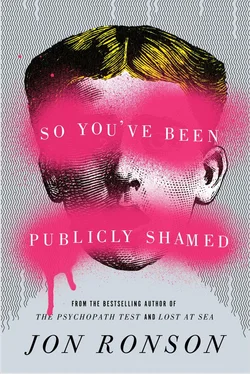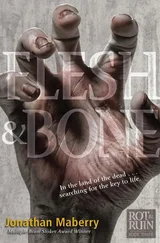The adjective most often applied to Jonah was “Gladwellian,” Malcolm Gladwell being the New Yorker writer and author of the era’s most successful counterintuitive pop-science book, The Tipping Point . Jonah’s book jackets looked like Malcolm Gladwell’s book jackets. Their jackets looked like Apple computer packaging. Jonah was becoming a sensation. When he switched jobs, it was a news story.
JONAH LEHRER JUMPS FROM WIRED TO THE NEW YORKER
Jonah Lehrer, the author of the popular science books “Proust Was a Scientist [ sic ],” “How We Decide” and 2012’s “Imagine,” has left his post as a contributing editor at Wired for the New Yorker, where he’ll be a staff writer.
In many ways, Lehrer is a younger, brain-centered version of Gladwell, making him a natural New Yorker fit.
— CAROLYN KELLOGG, Los Angeles Times , JUNE 7, 2012
Jonah resigned from The New Yorker after seven weeks in the job, the day Michael’s article appeared. On the Sunday night before publication, Jonah had been giving a keynote at the 2012 Meeting Professionals International’s World Education Congress in St. Louis. The subject of his talk was the importance of human interaction. During the talk — according to a tweet posted by an audience member, the journalist Sarah Braley — Jonah revealed that since the invention of Skype, attendance at meetings had actually gone up by 30 percent. After he left the stage, Sarah found him and asked where that implausible statistic had come from. “A conversation with a Harvard professor,” he replied. But when she requested the professor’s name, he mysteriously refused to divulge it. “I’d have to ask him if it’s all right to tell you,” he explained. She gave Jonah her card but never heard from him, which didn’t surprise her because the next morning he was disgraced and resigned his job.
In the days that followed, Jonah’s publisher withdrew and pulped every copy of Imagine still in circulation, and offered refunds to all who had bought one. The Dylan quotes had been enough to bring Jonah down. His subsequent panic spiral was definitely enough — Michael wrote in his exposé that Jonah had “stonewalled, misled, and, eventually, outright lied” to him. Internet message boards were replete with comments like “The twerp is such a huge over-achiever that there’s something delightful about seeing him humbled” ( The Guardian ) and “Save the royalties from your book, blockhead, ’cause you’re gonna need the money” ( The New York Times ) and “It must be strange to be so full of lies” ( Tablet ).
In Brooklyn, Michael was agonizing over whether he’d been right to press send. Although he’d essentially seen his takedown of Jonah as a righteous strike against the pop-science genre—“To make a tight little package where my mother would be like, ‘Ooh, I just read this thing, did you know that X leads to Y,’ you have to fucking cut corners”—Andrew Wylie’s words were haunting him. Maybe it wasn’t enough to ruin a man’s life over.
But there was worse to come. Wired magazine asked the journalism professor Charles Seife to study eighteen columns Jonah had written for them. All but one, he reported, revealed “evidence of some journalistic misdeed.” It was mainly Jonah reusing his own sentences in different stories, but that wasn’t all. Imagine if I had failed to put quotation marks around the sentences I lifted earlier from the Rhodes Scholarship website. It was that kind of pervasive sloppiness/plagiarism. Probably the worst infraction was that Jonah had taken some paragraphs from a blog written by Christian Jarrett of the British Psychological Society and passed them off as his own.
Michael was massively relieved — he told me — that “the rot spidered out to every book, every piece of journalism.”
—
Jonah vanished, leaving a final, innocent prehumiliation tweet like a plate of congealing food on the Mary Celeste .
Fiona Apple’s new album is “astonishing,” rhapsodizes @sfj.
—@JONAHLEHRER, JUNE 18, 2012
He ignored all interview requests. He resurfaced only once, to briefly tell Los Angeles magazine’s Amy Wallace that he wasn’t giving any interviews. So it was a great surprise when he responded to my e-mail. He was “happy to be in touch,” he wrote me, and “happy to chat on the phone or whatever.” In the end, we arranged to go hiking in the Hollywood Hills. I flew to Los Angeles even though his final e-mail to me included an unexpected and unsettling sentence toward the end: “I’m not sure I’m ready to be a case study or talk on the record.”
—
It seemed appropriate that we were hiking in a desert canyon, because his punishment felt quite biblical, a public shaming followed by a casting out into the wilderness, although that analogy only went so far because biblical wildernesses tend not to be filled with extremely beautiful movie stars and models walking their dogs.
We walked in silence for a while. Then Jonah listed two more reasons (alongside the “Americans want tragedies with happy endings” one) why I shouldn’t write about him. First, if I was planning to be kind to him, he didn’t deserve it. And, second, a warning: “What I mostly feel is intensely radioactive. So even people who come to me with good intentions, I end up transferring my isotopes onto them.”
Jonah was saying that spending time with him would ruin me in some unexpected way. “Well, that’s not going to happen to me!” I laughed.
“Then you’ll be the first,” he said.
As he said this, a bolt of panic shot into me. It was a frightening thing for someone to say. Still, I kept trying to convince him, on and on, but each line of reasoning seemed to make him more anguished, as if I were a siren trying to lure him to the rocks with my song of possible redemption. He said his worst days were when he allowed himself to hope for a second chance. The best were when he knew it was over forever and his destruction was necessary as a deterrent to others.
I gave up. Jonah drove me back to my hotel. In the car I stared at my lap, exhausted, like a cold-caller after a long shift.
Then, suddenly, Jonah said, “I’ve decided to make a public apology.”
I looked up at him. “Have you?”
“Next week,” Jonah said. “In Miami. At a Knight lunch.”
The John S. and James L. Knight Foundation was created by the owners of the Chicago Daily News and The Miami Herald to fund young journalists with innovative ideas. There was to be a conference for the fund organizers, Jonah said, and he’d been asked to deliver the after-lunch keynote on the final day. As an advocate of digital media, the foundation planned to broadcast his speech live on its website.
“I keep writing and scrapping and rewriting it,” Jonah said. “Would you read it over? Maybe after that we can discuss whether I fit your narrative?”
• • •
I am the author of a book on creativity that is best known because it contained several fabricated Bob Dylan quotes. I committed plagiarism on my blog. I lied, repeatedly, to a journalist named Michael Moynihan to cover up the Dylan fabrications.
I sat on the plane reading Jonah’s apology speech. It was a stark opening — an unembellished declaration of guilt, followed by an account of his shame and regret.
I think about all the readers I’ve disappointed, people who paid good money for my book and now don’t want it on their shelves.
I was surprised by his candor. Jonah had insisted on our hike that if he did decide to give me an interview the one off-limit topic would be the shame. It was too private and personal, he said. But by the next sentence, it became clear that the shame was something he intended to deal with as hurriedly as possible on the way to something else. This was, it quickly became clear, an apology speech like no other. He was going to explain his flaws within the context of neuroscience. It was a Jonah Lehrer keynote speech on the unique flaws of smart people like Jonah Lehrer. He began comparing himself to inadvertently imperfect scientists working at the FBI forensics lab. Innocent people had been convicted of terrorism because brilliant FBI scientists were “victims of their hidden brain, undone by flaws so deep-seated they don’t even notice their existence.”
Читать дальше












